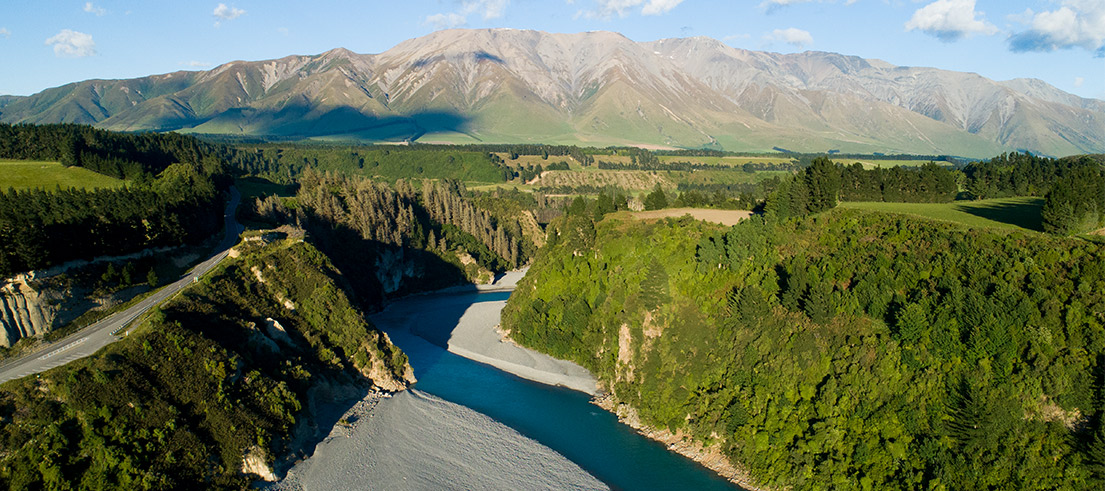
Plans firmly in place for local water zone committees
All water zone committees have now completed their 2021-2024 action plans. These plans guide the committees' priority actions in each zone.
"The action plans identify where the committees will focus their attention and community engagement in order to meet the Canterbury Water Management Strategy (CWMS) goals over the next three years," CWMS facilitation team leader Murray Griffin said.
"Completing these action plans is a big achievement. The committees have put a lot of work into understanding the water management issues in their areas, and what matters most to their communities. The action plan priorities the committees have set will guide how they support and facilitate improvements in these areas," he said.
Southern priorities
The southern zone committees will be focusing on cultural, biodiversity and water quality goals over the next three years.
Some key actions for each southern zone include:
- Ashburton - Enhancing mahinga kai values, ecosystem health and biodiversity; and recreation and amenity targets for the following key waterbodies: Ōtuwharekai/Ashburton Lakes; the Hekeao/Hinds catchment; and Hakatere/Ashburton River and tributaries, including Carters Creek and Whakanui hāpua.
- Orari Temuka Opihi Pareora - Protecting Māori rock art (tuhituhi neherā) sites, raising awareness about testing drinking water from private wells, providing support for local catchment groups, and promoting the understanding Te Mana o Te Wai.
- Upper Waitaki - Enhancing the health of key waterways for customary use and mahinga kai opportunities, preserving recreational values of the Waitaki Lakes, and supporting local catchment groups.
- Lower Waitaki South Coastal Canterbury - Working with groups and stakeholders to improve water quality in the zone, including Wainono Lagoon, the Waitaki Northern Fan and the Waihao River catchment areas. The committee is also planning to engage more often with the wider community to promote water quality issues, including field days and events.
Central priorities
The central zone committees have a large focus on community engagement and advocacy for freshwater outcomes.
Some key actions for each central zone include:
- Christchurch West Melton - community engagement and a focus on stormwater. The committee is also seeking improvements to erosion and sediment control.
- Banks Peninsula - community engagement for climate change, mahinga kai and fish passage. The committee is also seeking improvements to erosion and sediment control.
- Selwyn Waihora - private drinking water supply information and awareness raising, mahinga kai, biodiversity, recreation opportunity enhancement, catchment nutrient targets, water quality outcomes, restoration of Te Waihora, and restoration of the Waikirikiri/Selwyn River.
Northern priorities
Northern zone committees are focusing on kay waterways like the Waiau Toa Clarence and Ashley Rakahuri, to support catchment-based approaches to water quality improvement.
Some key actions for each northern zone committee include:
- Kaikōura - continued support for ki uta kia tai (mountains to the sea) catchment management in the Waiau Toa/Clarence and Lyell Creek/Waikoau waterways, kaitiakitanga through collaboration, support and advocacy, protect and enhance biodiversity, amenity and recreation outcomes, landowner support for changing regulations, increases understanding of catchment systems, community knowledge and connection to waterways, and public participation.
- Waimakariri - water monitoring, protection and improvement of indigenous biodiversity, habitat and ecosystems, braided river protection - Ashley Rakahuri, protection of natural landscape and recreation values, and mahinga kai.
Combined committee hui helps connect the dots
Part of the water zone committee structure includes sharing information and ideas between committees.
This year, a refreshed approach to how committees share information and their experience has been implemented, with "combined" meetings held with zone committee members based on a southern, central and northern approach.
The first combined hui was held in September for the four southern zone committees (Lower and Upper Waitaki, OTOP, and Ashburton). The three central zone committees (Selwyn Waihora, Banks Peninsula, and Christchurch West Melton) met two months later in November, and a combined hui for the northern zone (Waimakariri, Hurunui and Kaikōura) is being scheduled for February.
"These combined hui will support zone committees to help understand what else is happening across the region and enable a more integrated approach to issues and solutions," Murray said.
Canterbury Water Management Strategy - Zone Committees
Across the region, nine community-led water zone committees aim to develop actions and tactics to deliver on the 10 targets of the Canterbury Water Management Strategy in their zone. The committees make recommendations to councils and other organisations involved in water management.
The tenth water zone committee - Hurunui Waiau - was discharged in July this year following a decade of operating. Hurunui District Council is now engaging with Te Rūnanga o Kaikōura, Te Ngāi Tūāhuriri Rūnanga and Environment Canterbury on the co-design of a new Hurunui Water and Land Committee.
Find out more
- Find out more about what's happening in your water zone.
- Sign up to your water zone email newsletter.
